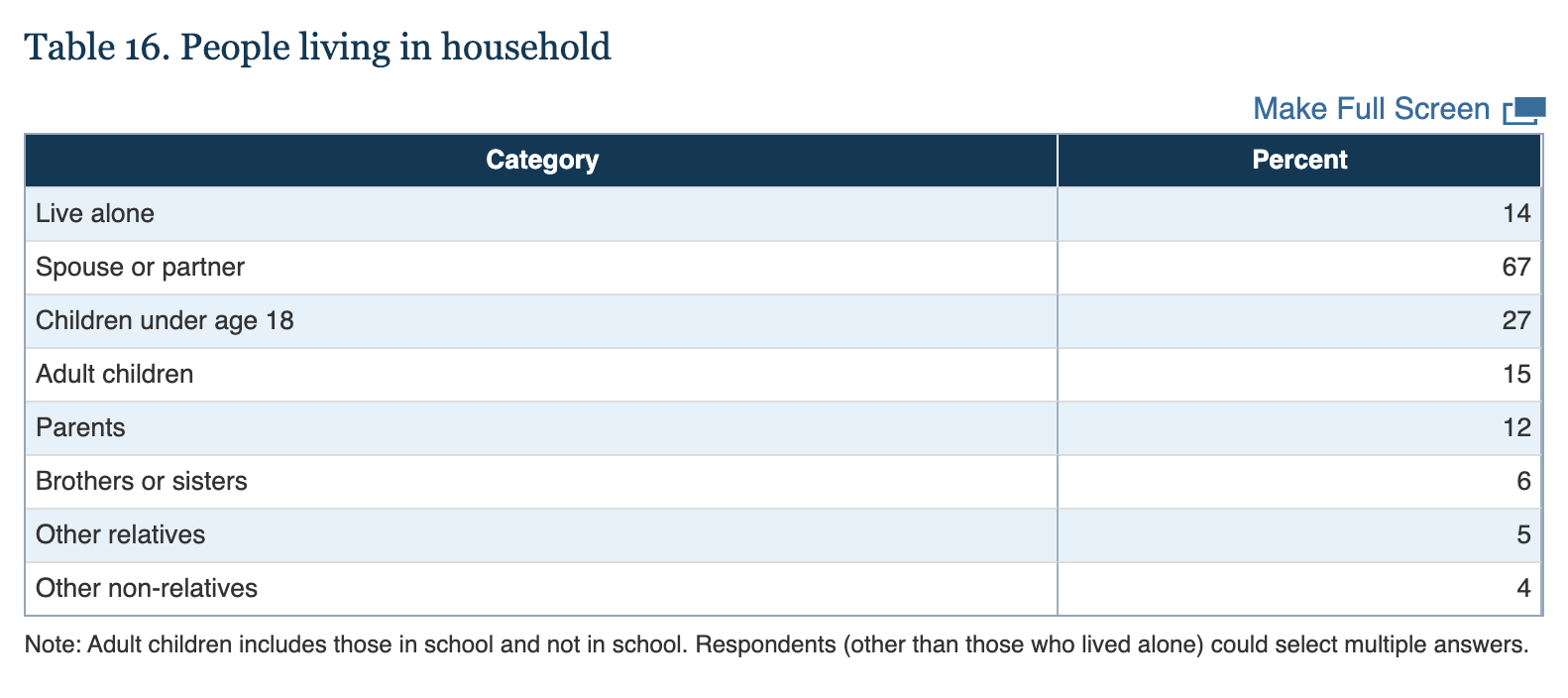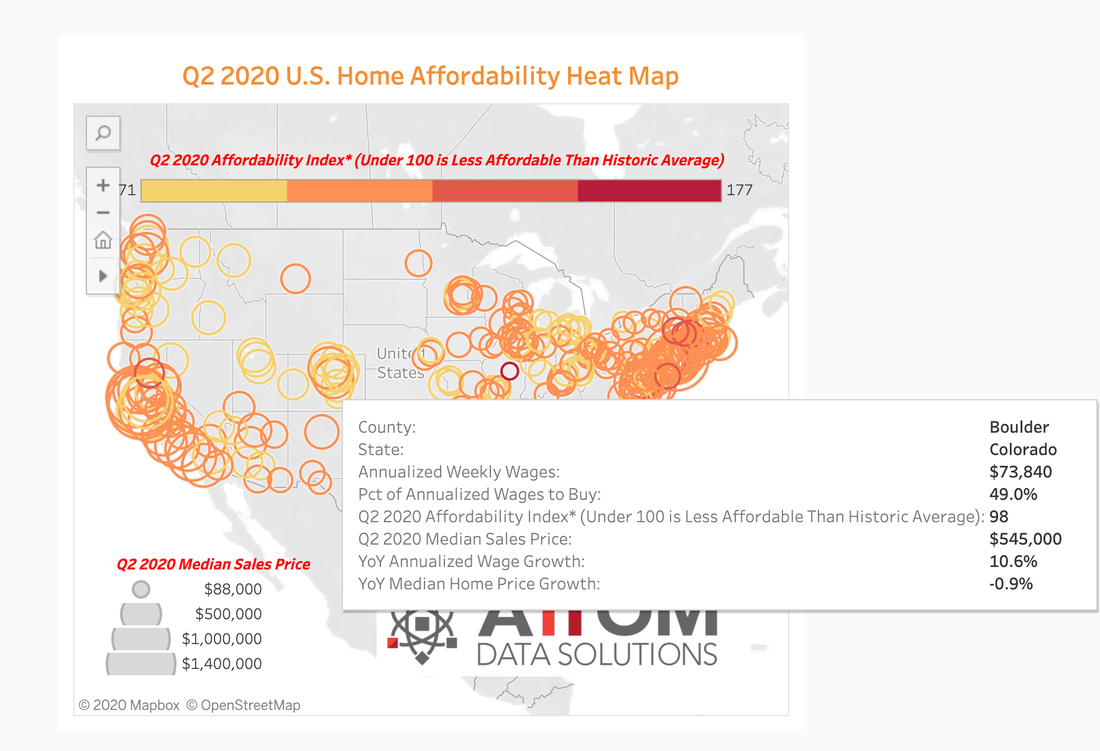|
With home prices at all-time highs, if you purchased a home any time after 2009, you’re probably feeling pretty smart about your purchase – even if you’re over-extended on your budget. It’s important to remember that there are more than a few equations to consider when making a successful home investment. Below are a few case studies and evaluation tools to help you make sure that you are on the right side of those equations. 2 Successful Case Studies Las Vegas to Off-Grid Living in Nature. Alvin and Jada made a bold choice in 2017 to move to a remote wilderness area in British Columbia. After a hellish winter of living in an RV and using rudimentary toilet facilities, they built their dream-come-true off-grid home. It was a lot of work, but their hearts were calling them to this way of life. (You can listen to them in their own words in the 4-minute Earth Gratitude film. You can read about them in the Real Estate section of my book The ABCs of Money 3rd edition.) All of this was possible due to a very lucrative home investment in Las Vegas in 2011, which doubled by 2017. They essentially bought very low, and sold quite high. Had they purchased in 2005 or 2006 in Las Vegas, they would still be underwater. Buying low was the key to their dreams. Silverlake to Destination Unknown During the Great Recession, A&A had to declare bankruptcy in their business. They were able to keep their home and do a loan modification, but the payments were eating up a large chunk of their income. As long as business flows, they can do this without amassing too much debt. However, they understand that a highly leveraged lifestyle isn’t sustainable for them, since their income implodes in recessionary times. Additionally, A&A are in their early 70s . They really should be looking to retirement. However, they still owe $650,000 on their mortgage. The one good thing in their favor was that Los Angeles real estate was on fire. In July of 2020, after a year of pondering and then planning, A&A sold their home for a million-dollar profit. Their plan is to rent for a year and then move to a more affordable area for their retirement. Their hope is that prices will have tempered somewhat by the time they are ready to purchase again. With their profits, they have plenty of money to retire where they want, in a more affordable area near family, even if they were tempted to buy immediately (which they are not). They feel like they are making all the right moves for the next chapter of their lives, and are grateful to be in a position to design their future – a feeling very different from the defeat and distress of the bankruptcy in the Great Recession. More Than a Few Decade-Shattering Decisions It’s important to remember that millions of homes were lost in the Great Recession. For millions of professionals, even those with a very high income, the financial cost of paying off nonperforming, underwater income property was devastating for the past decade. So, remember that deciding to purchase or keep a home has a minimum of two vitally important questions. 1. Can you easily afford the payments? 2. Are you purchasing the home for a good price, or are you at risk of the home losing value? Being stuck with a home that is worth less than the purchase price destroys your credit, ruins your opportunities to move for career advancement, weighs heavily on your personal relationships, limits your ability to downsize or right-size your budget and has other devastating effects on your life. Analysis for Equity Rich Homeowners. The New Normal Work from home is spurring a flight from urban to the suburbs. How will this affect your home equity? Are you on the right side of that trade? Or is your equity rich position under attack? Don’t assume that you are safe. It’s important to do the math. One of the most important equations to consider is affordability. In 75% of the U.S., denizens would have to spend more than 28% to buy a home. That figure is unaffordable – even with interest rates at an all-time low. It portends a weakening in prices. Work from Home Trends Unaffordability and the ability to work from home is spurring a flight to the suburbs. This could weaken prices in urban areas and strengthen them in the surrounding community. When you have less demand, due to unaffordability and a flight to the suburbs, high housing costs in the city can drop like a knife. Home prices have dropped 8% in New York City, where it would take 75% of the average person’s salary to purchase a home dwelling. Many people are moving in with family, causing an uptick in intergenerational housing. Inter-Generational Housing. 15% of adult children are now living with their parents, compared to just 2.4% in 2015. 12% of households have their parents living with them. Yes, this is out of necessity. Yes, it keeps more money in the family, instead of making the landlord rich. So, consider this growing trend when you are thinking outside of the box for solutions to live a richer life and weather the economic storms on the horizon – even if you are equity-rich. Conservation of capital, weathering storms, helping out family – all of these things will become popular if the Corona Virus Recession deepens. Shadow Inventory More than 3.6 million homes are severely underwater, where the mortgage is 25% higher or more than the value of the home. This statistic has been increasing, even though home prices are higher than ever. This has a lot to do with loan modifications and homeowners who are striking desperate deals with the bank. Getting a loan mod that puts your mortgage far above the value of your home is a temporary solution that puts opportunity on the table for patient buyers. Sadly, the existing homeowner is at risk of having all of her assets and income bled dry, and then ultimately getting foreclosed upon any way. Almost 8% of mortgages are currently in forbearance (source: Mortgage Bankers Association). With almost 32 million Americans taking some sort of unemployment (Source: DOL.gov), there could be a lot more payment peril on tap than people realize. What Year Did You Purchase Your Home? If you purchased your home between 2009 and 2015, and you can easily afford it (i.e. it takes up less than 20% of your income), then you may be able to weather the hardships on the horizon – if your job is secure. You should continue asking the questions below, however. If you purchased your home in 2016 or after, how much equity do you have? How would you feel if the local housing market dropped by 25% or more, and you owe more than the value of your home? Can you afford (emotionally or financially) to be locked into your current home paying down an underwater mortgage for a decade or longer? Examining your exit routes now, while you have options, is a better idea than getting stuck without many ways to extricate yourself from a tough situation. Don’t rely on the myth that real estate never goes down in your area. We’re in unprecedented times. There may be more to the analysis than you are considering. Look at 20-Year Price History. The Great Recession was in 2008. Between 2007 (the high for real estate on a nationwide basis) and 2011 (the low), many areas, particularly those that soared the highest, saw real estate values sink by more than half. You have to go back 20 years to see what really happened. For instance, Boulder, Colorado never really took off before the Great Recession. Home prices increased only 18.6% between 2002 and 2007 (2.4% annualized). So, there was never a bubble to pop. That has led some people to believe that home prices in Boulder never go down, which is a false assumption when prices become unaffordable to the locals. According to AttomData.com, it would take almost half of the average person’s wages to purchase a home in Boulder. Prices have dropped almost 1% year over year. You can look at wages vs. prices, and see more data on your city, on AttomData’s interactive map. The Thrive Budget. Is your current home affordable in a post-pandemic world? Will your income be impacted severely (or has it already been reduced)? Base your assumptions on what is likely to happen, not what you hope will happen. Currently, the paycheck protection loans from the US government expire at the end of September 2020. So, a lot of people are at risk of being furloughed. If you are in this position, the sooner you right-size your life, the better off you’ll be. There are solutions. Start by personalizing your own Thrive Budget in my free web app. Read the Thrive Budget section of The ABCs of Money 3rd Edition to get additional information. Time Span? How long do you want to live in your home? Make sure it makes sense for at least the next 8-10 years. Does another area make better sense for your family, for affordability reasons, family needs or career opportunities? Every soul has her own geography. Finding that place you can afford, where you love to wake up each morning, goes a long way to helping you live a richer life, which infuses magic in all you do. If you are getting closer to retirement, can you afford to pay off your mortgage by your retirement date? When you are on a fixed income, every bill you can toss out the window is gold in your wallet. Sanctuary Home. Do you and your family love the home, the neighborhood, the neighbors and everything about where you are? Are the schools good? Is the crime low? In a post-pandemic world, any problems are likely to be magnified, due to higher unemployment. You want to be ahead of any problems that might arise. If there are things you already have a strong dislike about, those emotions may escalate if other areas of stress (less income, higher costs, lower value) emerge. Should You Sell High? If…
Then the right answer could be to sell high, or consider how you can get help with the payment (perhaps through intergenerational housing). Sometimes intergenerational housing and thinking bigger is a better answer than downsizing. Having each family member living in their own tiny cell is a very expensive proposition. If you sell and right-size now, and wait a few years for prices to come down, or if you shop in the shadow inventory now for something that is more affordable, then you could weather this challenging economic time and be in a good seat going forward. Being over-leveraged or upside-down in your budget during a recession is a very bad seat to be sitting in. Income producing in a Post-Pandemic World. If you were relying on Airbnb to make ends meet, it’s, sadly, a new world. There is less travel. The sharing economy has come to a screeching halt (outside of family and intergenerational sharing). With high unemployment and less travel, if you are going to get any income out of your real estate or home, you’ll need to be forward-thinking about it. Many states have put a moratorium on evictions, making it financially perilous to be a landlord these days. College Planning. With college loan debt of $1.54 trillion, it’s a great idea to make sure that housing is part of the equation you are considering when you map out your teen’s College Experience. I cover this more in depth in my book The ABCs of Money for College. The Four D’s. In real estate, there are 4 Ds that can cause a homeowner to sell below the market – death, depression, disaster and divorce. To those 4 D’s, we can also add, unaffordability, job loss and underwater mortgages. So, for the patient buyer, the next few years could yield ample opportunity to purchase a great home. If you’re equity-rich, then you want to be sure that you can withstand the 4 D’s, plus UJLUM, if the plethora of challenges brought on by the current pandemic add up to lower home values. The bottom line is that successful investors are always forward-thinking. Don’t look at today and rest on your laurels. Do the math on your area and in your own budget, considering job-security and all of the other points outlined above, to determine if your sanctuary home is where you are now, or where you might be in two years – given a careful strategy. Refinance at The Lowest Rate in History If you choose to stay after all that analysis, then consider refinancing now at the lowest rate in history. Chances are high you’ll get a substantial reduction on your monthly payment. We spend one full day discussing housing, income producing real estate and what's safe at my Investor Educational Retreat. Click on the banner ad below for additional information on the Oct. 3-5, 2020 Online Financial Empowerment Retreat. Register by July 31, 2020 to receive the best price. "Many people, including educated men and women, often get into trouble when they neglect to follow simple and fundamental rules of the type provided [by Natalie]. This is why I recommend them with enthusiasm." Professor Gary S. Becker. Dr. Becker won the 1992 Nobel Prize in economics for his theories on human "College students need this information before they get their first credit card. Young adults need it before they buy their first home. Empty nesters can use the information to downsize to a sustainable lifestyle, before they get into trouble." Joe Moglia, Chairman, TD AMERITRADE. Other Blogs of Interest Airline Revenue Plunges 86%. 10 Questions for College Success Bank Earnings Season. Crimes. Cronyism. Speculation. Real Estate Solutions for a Post-Pandemic World. Copper and Chile Update. Gold Soars. Some Gold Funds Tank. Will the Facebook Ad Boycott De-FANG Stocks? Why Did My Cannabis Stock Go Down? Which Countries Are Hot in a Global Pandemic? Is Your Financial Advisor Good at Navigating Stormy Seas? $10 Avocados, Lies, Damn Lies, Statistics & Wall Street Secrets. It's Never a Crash. Work From Home and Intergenerational Housing. Biotech Races for a Coronavirus Cure. Are You Worried About Money? May is a Good Time for Rebalancing. Is FDIC-Insured Cash at Risk of a Bank Bail-in Plan? Why Did my Bonds Lose Money? Cannabis Update. Recession Proof Your Life. Free Videocon Monday, May 10, 2020. The Recession will be Announced on July 30, 2020. Apple Reports Terrible Earnings. We Are in a Recession. Unemployment, Rising Stocks. What's Going On? 8 Money Myths, Money Pits, Scams and Conspiracy Theories. 21st Century Solutions for Protecting Your Home, Nest Egg & Job. Wall Street Insiders are Selling Like There is No Tomorrow. Why Are My Bonds Losing Money? Tomorrow is Going to be Another Tough Day. Price Matters. Stock Prices are Still Too High. Should You Ride Things Out? 7 Recession Indicators Corona Virus Update. The Bank Bail-in Plan on Your Dime. NASDAQ is Up 6X. CoronaVirus: Which Companies and Countries Will be Most Impacted. Is Tesla Worth GM and Ford Combined. Artificial Intelligence is on Fire. Is it Time to Buy S'More? Take the Retirement Challenge. 2020 Investor IQ Test. Answers to the 2020 Investor IQ Test. The Cannabis Capital Crunch and Stock Meltdown. Does Your Commute Pollute More Than Planes? Are Health Care Costs Killing Your Budget? 2020 Crystal Ball. The Benefits of Living Green. Featuring H.R.H. The Prince of Wales' Twin Eco Communities. What Love, Time and Charity Have to do with our Commonwealth. Interview with MacArthur Genius Award Winner Kevin Murphy. Unicorns Yesterday. Fairy Tales Today. IPO Losses Top $100 Billion. Counting Blessings on Thanksgiving. Real Estate Prices Decline. Hong Kong Slides into a Recession. China Slows. They Trusted Him. Now He Doesn't Return Phone Calls. Beyond Meat's Shares Dive 67% in 2 Months. Price Matters. Will There be a Santa Rally? It's Up to Apple. Will JP Morgan Implode on Fairy Tales and Unicorns. Harness Your Emotions for Successful Investing. What the Ford Downgrade Means for Main Street. The Dow Dropped Over 1000 Points Do We Talk Ourselves into Recessions? Interview with Nobel Prize Winning Economist Robert J. Shiller. Ford is Downgraded to Junk. From Buried Alive in Bill to Buying Your Own Island. The Manufacturing Recession. An Interview with Liz Ann Sonders. Gold Mining ETFs Have Doubled. The Gold Bull Market Has Begun. The We Work IPO. The Highs and Hangovers of Investing in Cannabis. Recession Proof Your Life. China Takes a Bite Out of Apple Sales. Will the Dow Hit 30,000? A Check Up on the Economy. Red Flags in the Boeing 2Q 2019 Earnings Report The Weakening Economy. Think Capture Gains, Not Stop Losses. Buy and Hold Works. Right? Wall Street Secrets Your Broker Isn't Telling You. Unaffordability: The Unspoken Housing Crisis in America. Are You Being Pressured to Buy a Home or Stocks? What's Your Exit Strategy? It's Time To Do Your Annual Rebalancing. Cannabis Crashes. Should You Get High Again? Are You Suffering From Buy High, Sell Low Mentality? Financial Engineering is Not Real Growth. The Zoom IPO. 10 Rally Killers. Fix the Roof While the Sun is Shining. Uber vs. Lyft. Which IPO Will Drive Returns? Boeing Cuts 737 Production by 20%. Real Estate is Back to an All-Time High. The Lyft IPO Hits Wall Street. Should you take a ride? Cannabis Doubles. Did you miss the party? 12 Investing Mistakes Drowning in Debt? Get Solutions. CBD Oil for Sale. The High Cost of Free Advice. Apple's Real Problem in China: Huawei. 2018 is the Worst December Since the Great Depression. Will the Feds Raise Interest Rates? Should They? Learn what you're not being told in the MSM. Russia Dumps Treasuries and Buys Gold OPEC and Russia Cut Oil Production. Important Disclaimers Please note: Natalie Pace does not act or operate like a broker. She reports on financial news, and is one of the most trusted sources of financial literacy, education and forensic analysis in the world. Natalie Pace educates and informs individual investors to give investors a competitive edge in their personal decision-making. Any publicly traded companies or funds mentioned by Natalie Pace are not intended to be buy or sell recommendations. ALWAYS do your research and consult an experienced, reputable financial professional before buying or selling any security, and consider your long-term goals and strategies. Investors should NOT be all in on any asset class or individual stocks. Your retirement plan should reflect a diversified strategy, which has been designed with the assistance of a financial professional who is familiar with your goals, risk tolerance, tax needs and more. The "trading" portion of your portfolio should be a very small part of your investment strategy, and the amount of money you invest into individual companies should never be greater than your experience, wisdom, knowledge and patience. Information has been obtained from sources believed to be reliable. However, NataliePace.com does not warrant its completeness or accuracy. Opinions constitute our judgment as of the date of this publication and are subject to change without notice. This material is not intended as an offer or solicitation for the purchase or sale of any financial instrument. Securities, financial instruments or strategies mentioned herein may not be suitable for all investors.  About Natalie Pace Natalie Wynne Pace is an Advocate for Sustainability, Financial Literacy & Women's Empowerment. She has been ranked as a No. 1 stock picker, above over 835 A-list pundits, by an independent tracking agency (TipsTraders). The ABCs of Money remained at or near the #1 Investing Basics e-book on Amazon for over 3 years (in its vertical), with over 120,000 downloads and a mean 5-star ranking. The 3rd edition of The ABCs of Money was released in 2020. Natalie Pace's easy as a pie chart nest egg strategies earned gains in the last two recessions and have outperformed the bull markets in between. That is why her Investor Educational Retreats, books and private coaching are enthusiastically recommended by Nobel Prize winning economist Gary S. Becker, TD AMERITRADE chairman Joe Moglia, Kay Koplovitz and many Main Street investors who have transformed their lives using her Thrive Budget and investing strategies. Click to view a video testimonial from Nilo Bolden. Comments are closed.
|
AuthorNatalie Pace is the co-creator of the Earth Gratitude Project and the author of The Power of 8 Billion: It's Up to Us, The ABCs of Money, The ABCs of Money for College, The Gratitude Game and Put Your Money Where Your Heart Is. She is a repeat guest & speaker on national news shows and stages. She has been ranked the No. 1 stock picker, above over 830 A-list pundits, by an independent tracking agency, and has been saving homes and nest eggs since 1999. Archives
July 2024
Categories |










 RSS Feed
RSS Feed